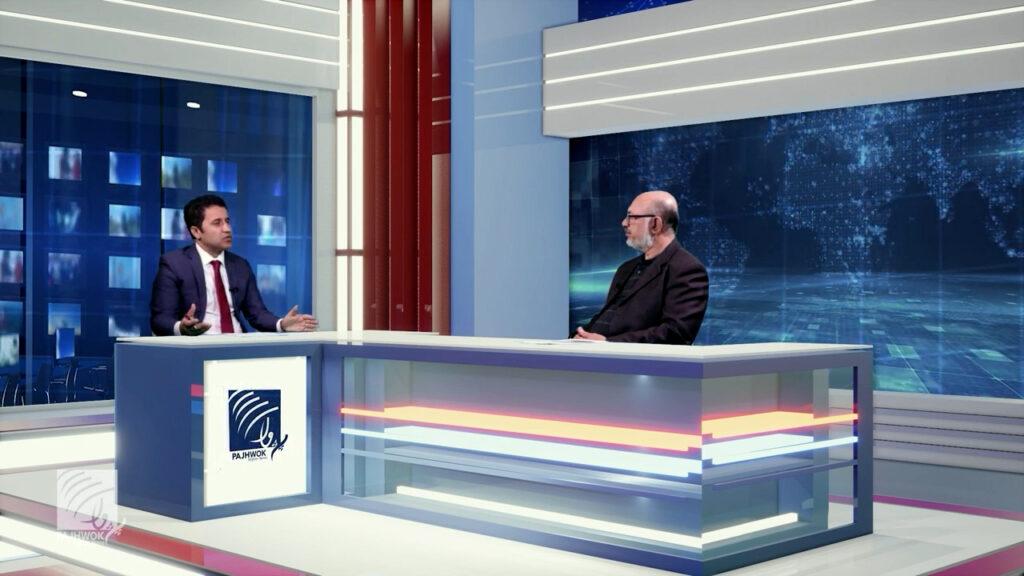KABUL (Pajhwok): Habibullah Qadri, counternarcotics minister during former president Hamid Karzai’s government, says the then government failed to win the war on drugs due to corruption and money Afghanistan received in this regard was mostly ended up with foreign companies.
Qadri claims many officials in the Karzai administration, including some cabinet members, were involved in drug trafficking.
He also said the caretaker government had banned cultivation of drugs, but he did not think there had been much difference in their cultivation. He praised the Islamic Emirate for collecting and treating drug addicts.
“Corruption plagued the Karzai’s government and drugs could not be stopped.”
Talking at Pajhwok Afghan News “Sarnawesht” (Destiny) program, Habibullah Qadri said former President Hamid Karzai would talk about fighting the menace of drugs and would take part in related programs, but he failed to appoint clean people at that time.”
He claimed many high-ranking government officials in the Karzai administration were corrupt, adding that Ministry of Interior officials would receive bribes from farmers for not eradicating their poppy crops and that was why the fight against drugs was a failure.
Qadri said when he was the minister, they prepared a list of drug smugglers who included some members of the Cabinet and smugglers were marked at the provincial level, but the list was not used.
He said smugglers introduced to the courts were also not tried properly. “For example, an official was sentenced to jail for smuggling 150 kilograms of heroin, but he changed his prison to Helmand province and escaped from there.”
Habibullah Qadri says that when he was the minister, drugs of Afghanistan were mostly smuggled to Europe and America through Pakistan, Iran and China and Afghan and international mafia were involved in it. He said they tried to talk to some countries on how to prevent drug smuggling.
“Some European countries would give Afghanistan money to prevent drugs and to reduce their supply, but Afghanistan insisted on eliminating the demand in foreign countries, something did not happem.”
He added a major part of the money Afghanistan received for fighting narcotics was spent by those foreign companies themselves or took the money back with them.
“Even now, there has not been much difference in the cultivation of drugs.”
Habibullah Qadri said: “According to my information, the Taliban would receive ushr in areas where narcotics were grown. Now the Taliban have banned cultivation of narcotics, I don’t think any significant decrease has come in their cultivation”.
Last year, the Islamic Emirate issued a decree proscribing cultivation, sale and smuggling of drugs. Officials say they are seriously fighting against drugs and have eradicated poppy crop on thousands of acres of land — a process still ongoing.
The Islamic Emirate banned poppy cultivation in 2001 during its previous government.
According to a survey by the United Nations Office on Drugs and Crime (UNODC) in 2001, the level of drug cultivation across the country decreased to 8,000 hectares of land, but in 2002, this amount increased to 74,000 hectares and in 2017, it surged to 238,000 hectares.
Qadri said drug business resulted in a criminal economy and harmed peace and tranquility in the country. He urged the current caretaker government to pay attention to farmers’ economic situation in the fight against narcotics.
He suggested the government should talk to foreign companies on making herbal medicines from the illicit plant.
The US in September released Afghan drug lord Haji Bashir Noorzai from about two decades. Noorzai, a business tycoon and supporter of the Islamic Emirate arrived in Kabul was released from detention in exchange for American citizen Mark Frerichs.
Habibullah Qadri accused Noorzai of being involved in drug trafficking. However he said the US arrested and convicted him to life time imprisonment not because of drug trafficking, but because of his ties to the Islamic Emirate.
The former minister hailed the process of collecting addicts from Pul-i-Sokhta area of Kabul, saying an important place of drug use was done away with. “Now it is important to take measures for their treatment.”
Last year, “Aghosh or Ghega”, a 5,000-bed center for the treatment of drug addicts was opened in Kabul and addicts are also being treated in a separate 1000-bed facility in Kabul.
About a month ago, the Ministry of Interior said about 82,000 drug addicts were collected nationwide, including 26,850 in Kabul city alone, during the past 18 months.
Most of the drug addicts in Kabul would live under the Pul-i-Sokhta bridge.
ma







GET IN TOUCH
NEWSLETTER
SUGGEST A STORY
PAJHWOK MOBILE APP